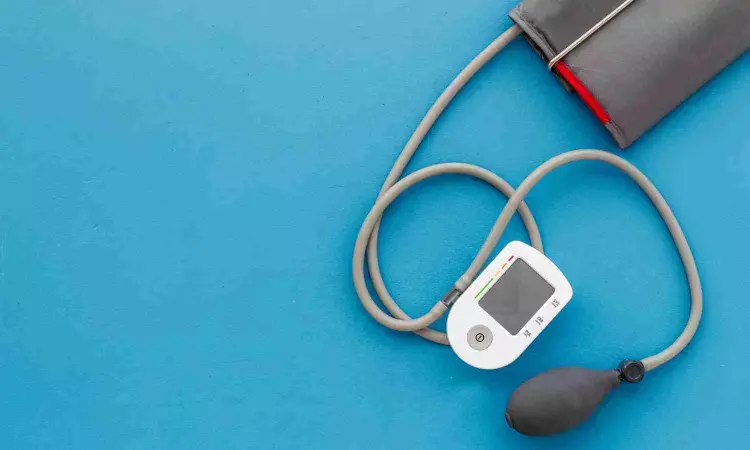- Home
- Medical news & Guidelines
- Anesthesiology
- Cardiology and CTVS
- Critical Care
- Dentistry
- Dermatology
- Diabetes and Endocrinology
- ENT
- Gastroenterology
- Medicine
- Nephrology
- Neurology
- Obstretics-Gynaecology
- Oncology
- Ophthalmology
- Orthopaedics
- Pediatrics-Neonatology
- Psychiatry
- Pulmonology
- Radiology
- Surgery
- Urology
- Laboratory Medicine
- Diet
- Nursing
- Paramedical
- Physiotherapy
- Health news
- Fact Check
- Bone Health Fact Check
- Brain Health Fact Check
- Cancer Related Fact Check
- Child Care Fact Check
- Dental and oral health fact check
- Diabetes and metabolic health fact check
- Diet and Nutrition Fact Check
- Eye and ENT Care Fact Check
- Fitness fact check
- Gut health fact check
- Heart health fact check
- Kidney health fact check
- Medical education fact check
- Men's health fact check
- Respiratory fact check
- Skin and hair care fact check
- Vaccine and Immunization fact check
- Women's health fact check
- AYUSH
- State News
- Andaman and Nicobar Islands
- Andhra Pradesh
- Arunachal Pradesh
- Assam
- Bihar
- Chandigarh
- Chattisgarh
- Dadra and Nagar Haveli
- Daman and Diu
- Delhi
- Goa
- Gujarat
- Haryana
- Himachal Pradesh
- Jammu & Kashmir
- Jharkhand
- Karnataka
- Kerala
- Ladakh
- Lakshadweep
- Madhya Pradesh
- Maharashtra
- Manipur
- Meghalaya
- Mizoram
- Nagaland
- Odisha
- Puducherry
- Punjab
- Rajasthan
- Sikkim
- Tamil Nadu
- Telangana
- Tripura
- Uttar Pradesh
- Uttrakhand
- West Bengal
- Medical Education
- Industry
Two-medication combo pills successfully lowers blood pressure among adults in India: Study

Medication variations that combined two of three different blood pressure-lowering medications into a single pill worked equally well in reducing blood pressure and were safe among adults in India, according to late-breaking science presented today at the American Heart Association’s Scientific Sessions 2024.
High blood pressure is a significant global health burden, affecting 300 million people in India and nearly half of all U.S. adults. Current international hypertension guidelines suggest combining various blood pressure-lowering medications; however, existing research has not determined which combinations offer the best outcomes in South Asian people.
“South Asians account for one-fourth of the world’s population, and India, in particular, has an enormous burden of hypertension, leading to high stroke and cardiovascular disease risk,” said lead TOPSPIN study author Dorairaj Prabhakaran, M.D., D.M., M.Sc., a cardiologist and executive director of the Centre for Chronic Disease Control in New Delhi, India. “Optimal blood pressure management is essential to lower the cardiovascular complications of high blood pressure.”
This clinical trial, called TOPSPIN, was initiated to specifically address high blood pressure among people of South Asian descent. In the multicenter trial in India, almost 2,000 adults were randomly assigned to one of three treatment groups-to receive a single pill, often called a polypill, that included a combination of two commonly recommended medications to lower blood pressure.
Each of the three participant groups was prescribed a pill combining two of these medications: a renin-angiotensin enzyme inhibitor (perindopril), which prevent the arteries from narrowing; calcium channel blockers (amlodipine), which prevent calcium from entering the heart muscle and arteries; and/or diuretics (indapamide), which help the body excrete excess salt and water. The primary outcome measured 24-hour ambulatory systolic blood pressure after taking the combo pill daily for six months.
After six months, the analysis found:
- All three combinations of the medications lowered blood pressure equally, with about 70% of the study participants achieving blood pressure below 140/90 mm Hg.
- More than 40% of participants achieved the stricter blood pressure target of less than 130/80 mm Hg.
- The absolute reduction in blood pressure for participants in all groups was approximately 30/14 mm Hg lower when measured in a physician’s office and 14/8 mm Hg lower when measured using 24-hour ambulatory blood pressure monitors.
- Each of the three combination pills had an excellent safety profile: less than 3% of all study participants reported ending treatment due to adverse effects from the medications. This confirms a high level of tolerability for the medications examined in the trial.
- The participants in the amlodipine-perindopril combination group also experienced a decrease in fasting blood sugar levels after six months.
“It was reassuring to find that all three dual combinations of commonly recommended blood pressure medications were equally effective,” Prabhakaran said. “This is contrary to the findings observed in the CREOLE study that examined the impact of a similar group of three high blood pressure combination pills in Black adults with hypertension in Sub-Saharan Africa and found amlodipine-based combinations to be superior.”
He noted that this study’s strength was that it included participants across India, a wide age range (30-79 years), both men and women, people with and without Type 2 diabetes, and those previously diagnosed and newly diagnosed with hypertension.
Among the study’s limitations is that about 17% of participants did not complete the six-month study.
While this study was conducted in India, it has significant meaning for South Asian adults in the U.S. “More than five million South Asian people live in the U.S., so these findings have huge relevance for them,” Prabhakaran said.
The October 2021 American Heart Association scientific statement, Medication Adherence and Blood Pressure Control, urges health care professionals to evaluate ways to simplify the medication regimen for people with hypertension, such as through prescribing a polypill or a fixed-dose combination pill-one tablet that contains multiple medications.
Dr Kamal Kant Kohli-MBBS, DTCD- a chest specialist with more than 30 years of practice and a flair for writing clinical articles, Dr Kamal Kant Kohli joined Medical Dialogues as a Chief Editor of Medical News. Besides writing articles, as an editor, he proofreads and verifies all the medical content published on Medical Dialogues including those coming from journals, studies,medical conferences,guidelines etc. Email: drkohli@medicaldialogues.in. Contact no. 011-43720751


